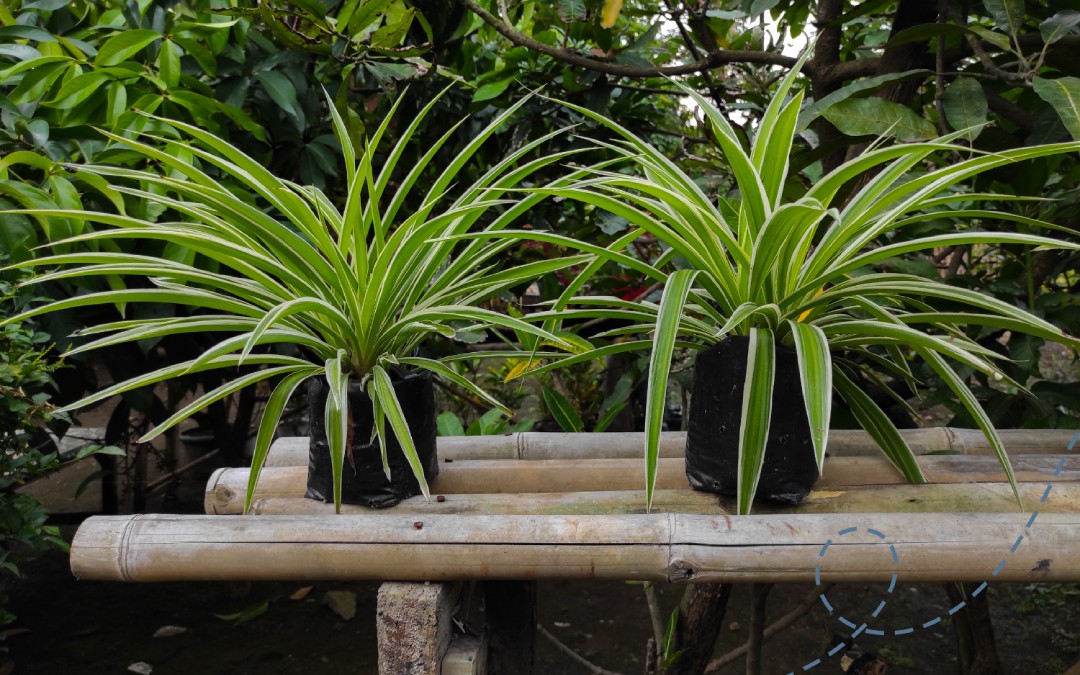Creating a pet-friendly home often means selecting plants that won’t harm your furry companions if they take a curious nibble. Fortunately, there are plenty of beautiful, non-toxic plants that are safe for both dogs and cats. Here’s a list of pet-safe plants to consider for your home and garden:
1. Spider Plant (Chlorophytum comosum)
- Description: Known for its arching, striped leaves, and easy-care nature, the spider plant is a great addition to any space.
- Benefits: Helps purify the air and is non-toxic to pets.
2. Boston Fern (Nephrolepis exaltata)
- Description: With its lush, feathery foliage, the Boston fern adds a touch of greenery to any room.
- Benefits: Non-toxic and helps increase humidity.
3. Bamboo Palm (Chamaedorea seifrizii)
- Description: This palm has elegant, feathery leaves and adds a tropical vibe to your space.
- Benefits: Effective at filtering indoor air and is safe for pets.
4. Areca Palm (Dypsis lutescens)
- Description: The Areca palm features graceful arching fronds and is a popular choice for indoor spaces.
- Benefits: Non-toxic and helps improve indoor air quality.
5. Parlor Palm (Chamaedorea elegans)
- Description: A compact palm with delicate, arching leaves that fits well in smaller spaces.
- Benefits: Non-toxic and easy to care for.
6. Ponytail Palm (Beaucarnea recurvata)
- Description: Recognizable by its bulbous trunk and long, curly leaves, this plant has a unique appearance.
- Benefits: Non-toxic and requires minimal care.
7. Cast Iron Plant (Aspidistra elatior)
- Description: This hardy plant has broad, dark green leaves and can tolerate low light and neglect.
- Benefits: Non-toxic and very resilient.
8. Friendship Plant (Pilea involucrata)
- Description: Known for its textured, round leaves and easy-growing nature, it’s a great indoor plant.
- Benefits: Safe for pets and adds a lush, green touch to your home.
9. Haworthia (Haworthia spp.)
- Description: A small, succulent plant with rosette-shaped leaves that’s perfect for sunny spots.
- Benefits: Non-toxic and easy to care for, though it should be watered sparingly.
10. African Violet (Saintpaulia spp.)
- Description: A popular flowering plant with vibrant blooms and velvety leaves.
- Benefits: Non-toxic and adds color to your indoor garden.
11. Basil (Ocimum basilicum)
- Description: An aromatic herb often used in cooking with fragrant leaves.
- Benefits: Safe for pets and useful in the kitchen.
12. Mint (Mentha spp.)
- Description: Another fragrant herb with vibrant green leaves, perfect for adding to beverages or dishes.
- Benefits: Non-toxic and easy to grow.
13. Parsley (Petroselinum crispum)
- Description: This common herb has curly or flat leaves and is often used in cooking.
- Benefits: Safe for pets and a good addition to a kitchen herb garden.
14. Christmas Cactus (Schlumbergera spp.)
- Description: A holiday favorite with bright, tubular flowers and segmented leaves.
- Benefits: Non-toxic and blooms in winter.
15. Air Plant (Tillandsia spp.)
- Description: Unique plants that don’t require soil and can be displayed in various creative ways.
- Benefits: Non-toxic and low maintenance.
Tips for Creating a Pet-Friendly Environment
- Research Before You Buy: Always check the safety of plants before introducing them into your home. Many reputable plant retailers provide information on plant toxicity.
- Monitor Your Pets: Even with safe plants, it’s a good idea to observe your pets’ behavior and ensure they’re not excessively chewing or playing with plants.
- Provide Alternatives: Offer pet-safe toys and enrichment activities to distract pets from plants and keep them engaged.
By selecting the right plants and ensuring a safe environment, you can enjoy the benefits of greenery without compromising your pets’ health. Happy planting!

